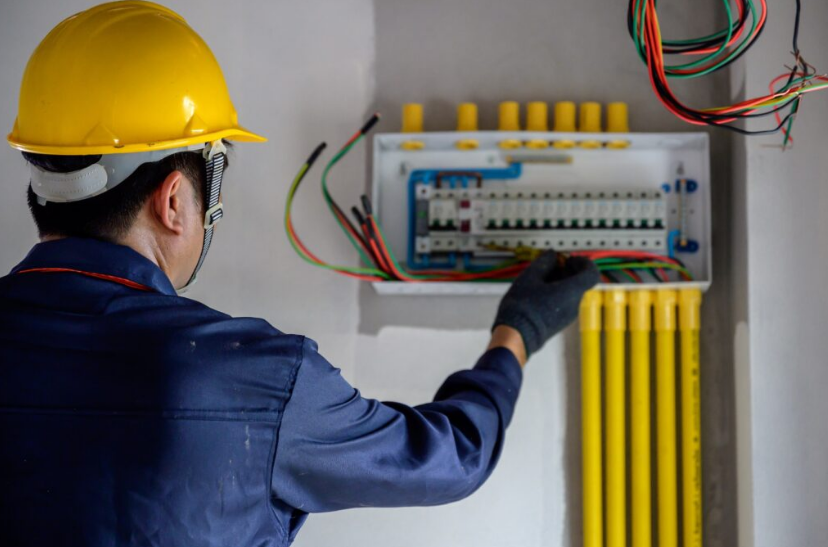Avoid Downtime: How Regular Electrical Maintenance Saves Your Business
Electrical systems are essential for keeping businesses running smoothly. Whether it’s powering lighting, computers, or machinery, reliable electricity is a fundamental requirement for any commercial operation. However, poorly maintained electrical systems can lead to costly downtime, lost productivity, and even safety risks. Regular electrical maintenance ensures your business operates without interruptions while staying safe and energy-efficient. Here’s how proactive maintenance safeguards your operations and your bottom line.
Why Electrical Maintenance is Critical
Proactive electrical maintenance is more than a routine task—it’s an investment in preventing problems before they arise. Many issues, like faulty wiring or overloaded circuits, can go unnoticed until they escalate into significant disruptions. Regular inspections and care allow problems to be addressed early, protecting your business from unplanned failures.
Reduced Risk of Equipment Failures
Malfunctioning electrical systems can cause expensive repairs when the problem leads to equipment breakdowns. This is especially true for industries that rely on advanced machinery or IT infrastructure. Inspections and servicing help identify components that need repair or replacement, preventing potential equipment failures.
Improved Workplace Safety
Faulty electrical systems can introduce significant hazards, including electric shocks, fires, and power surges. By investing in regular maintenance, businesses can create safer environments for employees and customers alike. Technicians check for potential risks like exposed wiring or malfunctioning outlets, eliminating dangers before they become serious.
Lower Energy Costs
An inefficient electrical system isn’t just prone to failure—it can also increase operating costs. Faulty wiring, outdated equipment, and energy leaks can add to your electricity bill. Maintenance checks ensure your system runs as efficiently as possible, helping you save money in the long run.
Key Components of Electrical Maintenance
A thorough maintenance plan addresses all aspects of your building’s electrical system. From routine checks to periodic upgrades, each element serves a critical purpose in keeping your operations running smoothly.
Conducting Routine Inspections
Routine inspections are a crucial first step in maintaining your electrical systems. During these inspections, professionals examine the condition of wiring, panels, outlets, and other components. Any signs of wear and tear or unusual activity, like flickering lights or warming outlets, are addressed immediately to minimize future risks.
Electrical Load Balancing
An overloaded circuit can cause frequent power outages and damage to sensitive equipment. Electrical load balancing ensures that the power demand in your facility is evenly distributed. This prevents circuit overload and extends the lifespan of your equipment, reducing the likelihood of costly downtime.
Testing Emergency Backup Systems
Backup generators and power supplies are a lifeline when unexpected outages occur. Regular testing and maintenance ensure these systems are in optimal condition and ready for use when needed. It’s important to verify that backup systems meet current capacity demands to avoid issues during emergencies.
See also: Elevate Your Space with Acoustic Ceiling Solutions
The Hidden Costs of Neglecting Maintenance
Skipping regular maintenance can lead to significant risks and expenses. While it might seem like a cost-saving decision in the short term, neglecting electrical care often leads to higher repair costs and business disruptions later on.
Unplanned Downtime Impacts Revenue
Imagine your business coming to a halt due to an unexpected power failure or electrical fault. Unplanned downtime not only disrupts operations but also results in lost revenue, unhappy customers, and reduced employee productivity. A regular maintenance schedule ensures these interruptions are minimized or avoided entirely.
Increased Repair Expenses
Minor issues that go unchecked can develop into major problems requiring expensive repairs or even system overhauls. Instead of addressing small, manageable concerns, neglecting maintenance could make your business face costly emergency fixes.
Legal and Liability Risks
Electrical safety standards aren’t just guidelines—they’re legal requirements in many industries. Employers failing to comply with safety regulations not only risk fines but also endanger their employees. Regular professional maintenance keeps your electrical systems up to code, safeguarding your business against liabilities.
Why Regular Expert Support Matters
While some businesses may rely on in-house expertise for basic electrical checks, contracting licensed professionals ensures higher accuracy and expertise. A commercial electrician like Jim Gierlach, for example, has the training to identify potential challenges that might go unnoticed by untrained personnel. Whether it’s handling complex electrical loads or installing modern energy-efficient systems, experienced electricians add value to your maintenance strategy.
Implementing an Effective Maintenance Plan
Now that the importance of regular maintenance is clear, how can businesses integrate it into their operations? Follow these steps to ensure your electrical systems remain efficient and reliable.
Schedule Regular Maintenance Visits
Establish a recurring schedule for professional inspections and tune-ups. Depending on your industry’s reliance on electrical systems, maintenance could range from monthly to semi-annual check-ups. Consistency is key to addressing issues before they turn into expensive problems.
Train Employees on Reporting Issues
Encourage employees to report any signs of electrical problems, such as flickering lights, unusual noises, or inconsistent power. Early reporting allows timely assessments and prevents minor issues from escalating.
Plan for System Upgrades
Outdated systems are more prone to failure and less energy-efficient. Integrate system upgrades into your business plan to stay ahead of potential disruptions. Consider energy-saving technologies to lower operational costs while boosting reliability.

